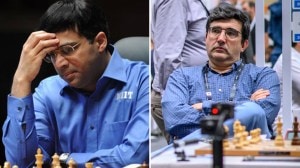SC rules in favour of Mukesh in gas war,rejects Anil claim
Holding that natural gas is a national asset,the Supreme Court today gave control of gas pricing and supply to the government and backed...
Holding that natural gas is a national asset,the Supreme Court today gave control of gas pricing and supply to the government and backed Reliance Industries,controlled by Mukesh Ambani,by dismissing a family pact with younger brother Anil Ambani as technically and legally not binding.
The court said that though the government has delegated exploration,extraction and exploitation of natural resources to private players,the latter is equally subject to constitutional restrictions. The court verdict means RIL will be able sell gas at the government-fixed price of $4.20 per mmBtu (million standard cubic metres) or even more if the government agrees compared with $2.34 per mmBtu demanded by the Anil Ambani group firm Reliance Natural Resources
Ltd (RNRL).
This is a big setback for the Anil Ambani group which was banking on K-G (Krishna-Godavari) gas at a cheaper price for its power projects including the 3,500 mega watt plant at Dadri in Uttar Pradesh. While RNRL lost one-fifth of its market value and closed 23.7 per cent down at Rs 52.10 on the National Stock Exchange,other Anil group shares were also hammered,dropping between 2.8 per cent and 8.5 per cent after the Supreme Court verdict.
In a constitutional democracy like ours,the national assets belong to the people. The Government holds such natural resources in trust. Legally,therefore,the Government owns such assets for the purposes of developing them in the interests of the people. In the present case,the Government owns the gas till it reaches its ultimate consumer, a majority judgment written by Justice P Sathasivam and supported by Chief Justice of India K G Balakrishnan ruled.
With the Supreme Court verdict,the government will be able to dictate its terms on price,quantity and tenure for supply of gas. The revenue of the government and RIL from gas supply will get a big boost. The SC ruling will also set a basis for future regulations on gas pricing in India. On the other hand,Anil group firms RNRL and Reliance Power will have to shell out more money to buy gas for the groups power plants.
On the subject of the validity of the Ambani family agreement,the court said,The Memorandum of Understanding (MoU) is not technically binding between RIL and RNRL. It is not in dispute that MoU is between three persons and the personality of the company must be construed separate from these persons.
It held that though in small undertakings the company and the owner may share the same identity,in the case of RIL and RNRL,the companies have more than three million shareholders,in such a situation,one cannot make the companies personality the same as that of persons involved.
Agreeing with his fellow judges on the bench,Justice B Sudershan Reddy added that it is high time the government frames a comprehensive policy/suitable legislation with regard to energy security of India and supply of natural gas under production sharing contracts (PSC).
The court closed a five-year-old feud on gas pricing by asking Mukesh Ambani-run RIL and Anils RNRL to re-negotiate their gas sharing contract,drawn in 2005,on the lines of the prevalent government policies.
Anil Ambani,who was present at the Supreme Court when the verdict was announced,later said: RNRL looks forward to expeditious and successful renegotiations with RIL within the stipulated period of six weeks to secure gas supply for the groups power plants in line with the Supreme Court order. RNRL has currently no plans to file a review petition in the Supreme Court.
On the other hand,an RIL official said the company will start negotiations with RNRL as directed by the Supreme Court but the price would be $4.2 per mmBtu. We have nothing more to say. We will follow the courts directive, said an RIL official.
Petroleum Minister Murli Deora,who faced immense flak from the Anil camp for allegedly supporting RIL,said,I welcome the verdict. No matter what campaign one ran against the government,the nation is supreme.
We hold that it is not proper for the court to make modifications of this nature in the scheme. These changes must be arrived at by the parties themselves through negotiation. Furthermore,we hold that such negotiations must be done within the ambit of the government policies,including the over-riding effect of the Profit Sharing Contract (including the Development Plan under Article 10.7),EGOM decisions and other related national policies, the court held. Re-negotiations are to start in eight weeks and the brothers have to come up with results six weeks after commencement of talks.
Anil had claimed rights to 28 million standard cubic meters of gas per day (mscmd) from RILs prolific Krishna-Godavari D6 basin fields off the east coast at a rate of $2.34 per million British thermal unit (mmBtu) 44 per cent lower than the price set by the government on the basis of a family MoU between the brothers when they split the Reliance groups assets.
RIL had rejected RNRLs claim,saying the sale of gas at a price less than $4.20 per mmBtu was not envisaged as per the Empowered Group of Ministers decision taken in accordance with Production Sharing Contract entered into with the government on April 20,2000. The contents of the MoU were only revealed in parts during court hearings and admittedly the shareholders had no access to the contents. This very fact led to the dismissal of its legal validity today,with the court observing that a private family arrangement clearly not approved by the shareholders is not legally binding in the corporate domain.
The majority verdict supported the finality of the Profit Sharing Contract (PSC),saying that it overrides any other contract which may be entered into for the supply for gas. This principle flows from the following a) the natural resource,gas,is held by the government and trust on behalf the people. Therefore,for legal purposes,the government owns the gas till it reaches its final consumer; b) the PSC is the basis on which the contractor exercises his right over the supply of gas.
Though the judgment gives RIL marketing freedom to sell the product from the contract area to other consumers,this freedom is not absolute. The price at which the produce will be sold to the consumer would be subject to governments approval, the court laid the condition.
Rejecting Anils claim for gas at a reduced price,the court said: The price of $ 4.20/mmbtu is based on the formula approved by the Government under its powers pursuant to the terms of the PSC. To put it clear,both in terms of the Gas Utilization Policy and the Production Sharing Contract,government in the capacity as an Executive of the Union can regulate and distribute the manner of sale of natural gas through allotments and allocation which would sub-serve the best interest of the country.
Further to RNRLs argument that governments hold is restricted to its own share of gas from the basin and not to the companys based on the MoU,the judgment said: The power of the government under the PSC is quite broad and includes the power to regulate the price and distribution of gas. Such a power requires determination of price of supply and not only for the determination of the share of the contractor (RIL) but also for the government. Thus keeping the objectives of the PSC in mind,it would not be possible to restrict the power of the Government.
The court also rejected the younger Ambanis allegation that the Dadri power project still remains on paper because the Gas Sale Master Agreement relating to supply of gas,tenure,pricing entered into with RIL in 2006 during the split was a non-bankable contract.
While RNRL had all along been contending that for want of bankable gas supply agreement it could not establish a power plant including Dadri. In fact,money has already been raised $510 m for Dadri Plant by way of External Commercial Borrowings. This position was candidly accepted by RNRL. Reliance Power Ltd.,the company that is now promoting Dadri has raised Rs 11,000 crore from the public. The shortage of funds is an excuse it is simply not true, the court noted.
When RIL has put its equity and also borrowed money and completed the project,RNRL is not even in initial stage of construction of its power project, it noted.



- 01
- 02
- 03
- 04
- 05




























